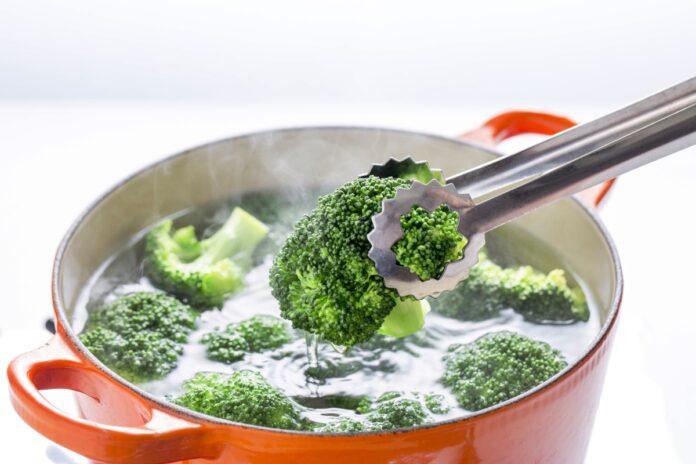
Let’s settle the steamy debate: to boil or not to boil your vegetables? This culinary conundrum has simmered in kitchens and nutrition blogs alike, stirring up questions about the best ways to preserve the nutritional bounty of our beloved greens (and reds, and yellows). As we embark on a culinary exploration, let’s uncover the effects of boiling on our veggies and discover healthier, flavor-packed alternatives.
The Boiling Point: Nutrients in the Hot Seat
Boiling vegetables is a tradition in many kitchens, but it’s worth asking: what happens to the nutrients when they take the plunge into hot water? The process can be a bit of a double-edged carrot. While boiling makes certain veggies easier to digest, it can also lead to the loss of water-soluble vitamins such as vitamin C and B vitamins. For instance, broccoli, spinach, and bell peppers might surrender some of their nutritional wealth to the boiling water.
Research has shown that boiling can reduce the content of vitamin C in vegetables by up to 50%, and folate losses can be as high as 35%. However, not all news is dire; boiling might lower the beta-carotene in carrots, yet the availability of this nutrient can actually increase after cooking, making it easier for your body to absorb.
When Boiling Bubbles Up as the Best Option
Though often maligned, boiling isn’t always the villain in the nutrient narrative. It shines brightly when you’re crafting a broth or a soup, where the vitamins leached into the water contribute to the dish’s nutritional profile, ensuring that no goodness goes down the drain. Moreover, boiling veggies doesn’t require additional fats, aligning with dietary goals focused on reducing fat intake. So, in the soup pot, boiling vegetables might just be your culinary hero.
Turning Up the Heat on Alternative Cooking Methods
As we peel away from boiling, other cooking techniques tender crisp results while keeping the nutrient profile robust. Here’s how to keep your vegetables vibrantly nutritious and deliciously inviting:
- Microwaving – Quick and convenient, microwaving preserves vitamins and minerals thanks to its short cooking time.
- Steaming – Gentle on nutrients, steaming preserves the integrity of water-soluble vitamins and minerals.
- Roasting – For a flavor-rich alternative, roasting enhances the natural sweetness of vegetables without significant nutrient loss.
- Sautéing – Quick and with minimal nutrient loss, sautéing in a bit of healthy fat can boost the absorption of fat-soluble vitamins.
Choosing a method that uses minimal water and shorter cooking times can help preserve the nutritional value of vegetables, ensuring your meals are as nourishing as they are delicious.
Boiling Down the Facts
While boiling may cause some vegetables to lose nutrients, it’s far from being a culinary faux pas. In fact, boiled vegetables can be part of a healthy diet, especially when the alternative is not consuming veggies at all. The key is balance and variety in your cooking methods, ensuring you get the most out of your vegetables’ nutritional potential.
So, whether you’re a fan of the boil, the steam, or the roast, remember: the best vegetable is the one you enjoy eating. Experiment with different methods to find what works best for you and your palate. And don’t forget to share your culinary adventures and discoveries with friends or dive deeper into our treasure trove of health and nutrition articles. Join our newsletter for more tasty tips!










